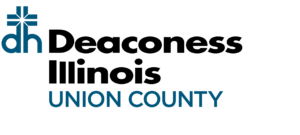Cardiology
Cardiology Overview and Conditions
When it comes to the muscles in your body, none is more important than your heart. Responsible for pumping oxygen-rich blood to every organ and extremity, the heart is literally your lifeline. In the event your heart suffers injury or disease, the consequences range from bothersome to fatal.
Experienced cardiologists are available to diagnose and treat a variety of heart disease conditions. The goal is to help you improve your cardiovascular health in an effort to avoid cardiovascular disease. And, if you’re living with a heart condition or issue, the goal is to get you back on track to a healthier future.
Heart Attack
Year after year, heart attack is one of the top causes of death in the United States. While the damage it causes seems to come out of nowhere, heart attacks result from a combination of lifestyle choices and genetics. Though genetics certainly play a role in your risk, your likelihood of suffering a heart attack increases if you smoke, are overweight, eat an unhealthy diet and don’t get sufficient exercise.
A heart attack occurs when plaque (waxy, fatty substance) builds up in the arteries so that blood cannot pass through. This stops blood from reaching the heart, which results in a variety of symptoms, including intense chest pain, pain in the jaw, arms or back, nausea, cold sweat, sudden fatigue, and shortness of breath.
Heart Arrhythmia
There are a variety of arrhythmias, but all of them mean your heart is beating irregularly, whether it beats sporadically, too quickly or too slowly. These atypical conditions can be present at birth or develop at any age or stage of life and can be caused by electrical malfunctions or anatomical irregularities within the heart.
Depending on the type and severity of the arrhythmia, treatment options range from medication to pacemaker placement to surgery.
Congestive Heart Failure
Also known as CHF, congestive heart failure occurs when the heart doesn’t have the strength necessary to pump blood through your body. Whereas heart attacks occur because blood can’t travel through plaque-filled arteries, CHF occurs because the heart muscle grows weak or stiff.
When this happens, the heart doesn’t push enough blood through the body. The most common symptom of congestive heart failure is shortness of breath like the feeling of being out of breath after a race. Many patients describe it as they feeling of just having run a marathon.
Take the Heart Risk Assessment.
Cardiology Services
- Uncontrolled hypertension
- Nuclear cardiology
- Echocardiography
- Atrial fibrillation
For More Information
Call 618-833-4511
Related Services and Conditions
Cardiac Rehabilitation Program
At Deaconess Illinois Union County, we’re all heart. Cardiac rehabilitation services help people living with heart disease or who are recovering from a cardiac event like a heart attack or bypass surgery build endurance and strength. But it’s not all about the body’s...

